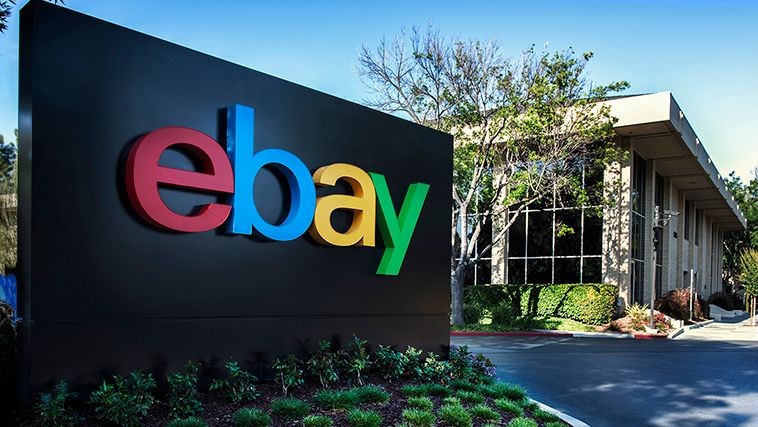Save on support costs, extract more value from enterprise software investments, and invest in innovation.
SPONSORED - Ask the major ERP software providers what to do with your established, internally-deployed system and they will likely tell you in no uncertain terms to move it to their cloud – or at bare minimum make the move to upgrade to that long-delayed latest release, replete with fresh fees. If you don’t make the expensive decision and undergo the complicated journey, you could lose functionality and expose yourself to cyber-risk, come the regular warnings.
This is unnecessary, says Rimini Street -- a company that specialises in providing comprehensive support services for Oracle, SAP, Microsoft, IBM, and Salesforce software. There are entirely safe, modern alternatives that can free up budget for more pressing digital transformation projects and unshackle you from vendors typically interested more in padding their own bottom line with expensive license fees than supporting your transformation.
The company – which names hundreds of blue chips and even the militaries of several developed countries as clients – has made a name for itself by encouraging ERP licensees to “shift left” and adopt skilled third-party support. It has a growing audience. With premier Support for Oracle E-Business 12.1 ending in December 2021 and the end of SAP’s ECC6 mainstream maintenance on the horizon as the company continues to push customers towards its somewhat unproven S/4HANA, the question of how to tackle the future of your ERP system -- for most enterprises, heavily customised, backbones of their IT operations – remains a big one.
There are three main questions you should ask as you consider your ERP modernisation strategy, says Rimini Street.
- “Is this shift as important for us as it is for the software vendor?”
- “What is the business case?”
- “What are the options?”
1: “Is this shift as important for us as it is for the software vendor?”
Speaking to The Stack earlier this month, Rimini Street CEO Seth Ravin discussed likely vendor motivations, pointing to their high margins and often aggressive license audit practices.
“Our focus”, he said, “is on the delivery side of the business; the client value side. We provide support – that’s entirely what we do. And our customers rate that support exceptionally highly. That’s why we’ve grown to be an over $300 million a year company, with some very large public and private sector customers.”
“Our business model is very disruptive”, he added. “We’re often saving customers millions and millions per year. That lets them re-allocate their spending to real digital disruption. Because honestly, if you’re a bank, or a big manufacturing organisation, or a public authority, a new hugely expensive ERP upgrade or cloud migration really doesn’t offer that much competitive advantage. Right now you want to be investing in digital innovations at the heart of your core business model. You don’t want to be spending tens of millions on ERP that really delivers very few new functionalities that truly add business value to you as an end-user.
“In fact some of the newer ERP releases from the big vendors actually cut functionalities!”
2: “What is the business case?”
Customers should closely consider whether the value received for the support offered by their existing vendor is worth the price. According to a Rimini Street survey of SAP licensees, for example, only 5% said they felt the fees they paid for SAP support were “well worth the value we receive”. Neither SAP nor Oracle support custom code issues, so licensees typically also absorb additional support costs beyond annual maintenance fees.
If you’re running Oracle EBS 12.1 or earlier, for example, you’re paying Oracle some 22% of your license fees for old patches and fixes usually with no new updates or features, Rimini Street notes. Upgrading to 12.2 just to get support that – again – does not support the custom code most likely to require it is not a hugely strategic way to allocate IT budget amid pressure to deliver needle-moving digital transformation initiatives.
And as many EBS 12.2 licensees have found, the application’s enhancements and features are nice-to-haves but do not drive a meaningful ROI: very few enhancements are likely to wow lines of business.
Ultimately, the company holds, every IT leader should be asking the hard questions: what tangible new value do these updates provide that help my business reduce costs or increase competitive advantage? Because in times of uncertainty and the growing need for IT to deliver true digital transformation, there should be no sacred cows: no existing contract should be too sacred, no vendor too intimidating to rethink your strategy.
3: “What are our options?”
Stay and pay? Lift and shift? Or change tack?
For many users, abandoning their investment in a mature, customized, and effective (albeit complex) SAP implementation in favor of a relatively immature S/4HANA and its SAP HANA database is not a hugely palatable option with a clear ROI. The same applies for deeply rooted Oracle ERP systems.
There are well-trodden, cost-effective hybrid paths out of this thicket however that don’t involve ever tighter vendor lock-in and ever-rising fees. Many customers are choosing to keep their existing and well-established ERP software implementations, maintain them with third-party support – Rimini Street says it can help customers save up to 90% on total maintenance costs -- then progressively peel off applications to an independent cloud offering such as AWS or Azure. (As CEO Seth Ravin points out: “Technology is changing so fast. It’s absurd to lock yourself into something that will likely be obsolete in another five years...”)
Isn’t dropping expensive support direct from the vendor – let alone ignoring their exhortations to move your internally-deployed implementation to their very own cloud -- a security risk, and one likely to result in bugs?
Vendors will say yes. Rimini Street says categorically no: it applies a layered security approach that includes “virtual patching” to minimise the attack surface and block attacks. Its solutions are not dependent on the most current software release – and as the company points out, even those paying through the nose for top-tier support from large vendors typically still only apply security patches once a year — if at all — due to regression testing, downtime, and lack of resources. And ERP systems running smoothly for years are more likely to pick up bugs via a forced upgrade than via experienced, knowledgeable support.
In addition to annual vendor maintenance fees, total support costs typically also include upgrade costs, customisation support costs, and resource costs due to vendor maintenance inefficiencies, the company holds. By taking a third-party support route, businesses and their IT leaders can demonstrate to their CEO or CFO not just a refreshing ability to ask for less, rather than more, but showcase the ability to free up elastic working capital that can be applied toward the bottom line or used to fuel far more strategically important top-line growth initiatives.
Want to learn more about the positive impact of moving to independent, third-party software support? Download the whitepaper below.









